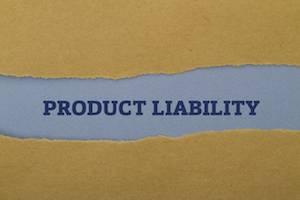
How Can I Pursue Damages for Injuries Caused By a Defective Product?
 You have probably seen a warning label on at least one product in your house, from laundry detergent pods to hair dryers. But do you know why that warning label is there? One reason is to prevent you from winning a product liability lawsuit against the manufacturer.
You have probably seen a warning label on at least one product in your house, from laundry detergent pods to hair dryers. But do you know why that warning label is there? One reason is to prevent you from winning a product liability lawsuit against the manufacturer.
Product liability lawsuits are different from other personal injury lawsuits in one important way. In most personal injury cases, you must show that you suffered injury due to another party’s negligence, meaning that they failed to act with reasonable caution. In a product liability case, however, you do not have to show negligence. You only have to show that you suffered injury because a defect in the product made it dangerous or unfit for its intended use. You can argue your case based on one of three types of defects:
- A defect in design
- A defect in manufacturing
- Inadequate instructions and warnings on the product
In order to win a product liability case, you must show that:
- You used the product as it came, without modifying it.
- You used it for its intended purpose.
- You followed the directions and heeded the warnings provided.
- You suffered specific damages, such as physical injuries, illness, or financial losses.
- Your losses were caused by your use of the product.
The last factor, causation, is sometimes difficult to prove, due to a time lag between your use of the product and the appearance of an illness such as lung damage or cancer.
In recent years, consumers have won highly-publicized lawsuits against U.S. manufacturers on all three bases. One of the most well-known cases involves Takata airbags.
At least 15 people have been killed in the U.S. and dozens more have been injured by defective Takata airbags in several brands of cars and trucks. The defect was in Takata’s design of the airbag’s inflator, a metal cartridge loaded with a chemical propellant. Takata chose to use a volatile chemical that can break down over time when exposed to moisture and high temperatures, and Takata failed to include a chemical drying agent known as a desiccant. The chemical breakdown can cause the inflator cartridge to explode, sending metal shards into an occupant and resulting in improper inflation of the airbag.
Injured victims have filed and won product liability lawsuits against both the auto manufacturer and the airbag manufacturer. In addition, owners of affected vehicles have filed lawsuits against the auto manufacturers to recover damages for the inconvenience suffered while waiting for airbag replacement. Since the defect was discovered and recalls began in 2008, more than 30 auto brands in the U.S. have had to recall more than 40 million vehicles.
A Will County Personal Injury Lawyer with a Will to Win
Product liability lawsuits pit you against the manufacturer of the product, which is often a large corporation with extensive resources. You will need an assertive and persistent Joliet personal injury attorney to pursue your case and obtain all due compensation for your physical injuries and financial losses. Call Schwartz Injury Law at 815-723-7300 to schedule a free consultation.
Sources:
https://thelawdictionary.org/article/five-things-to-know-about-proving-a-product-liability-claim/
https://www.consumerreports.org/car-recalls-defects/takata-airbag-recall-everything-you-need-to-know/
https://www.nhtsa.gov/equipment/takata-recall-spotlight







